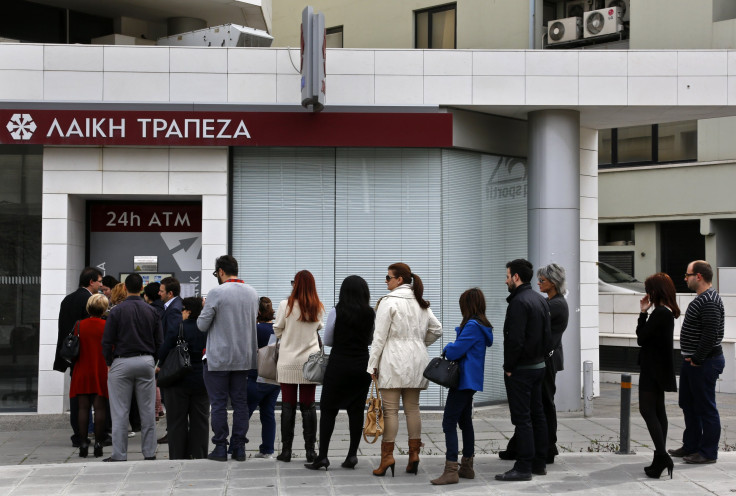Cyprus To Become First EU Country To Set Capital Controls, Banks To Reopen Thursday

This is a developing story. 8:29 EDT
Cyprus will severely restrict its citizens' ability to access their bank deposits and move their money when banks reopen on Thursday, the first time a euro zone country has taken such steps.
The government, which has kept banks closed since March 16 as it struggled to keep the island nation's financial system from collapsing, is taking the steps -- unprecedented for the European monetary union -- to avoid having nervous depositors drain the banking system, the Wall Street Journal said, citing anonymous sources.
Depositors have been trying for nearly two weeks to access their funds because Nicosia, in order to obtain a €10 billion ($13 billion) emergency loan from the International Monetary Fund, the European Central Bank and the European Union, agreed to assess a one-time levy of as much as 40 percent on bank deposits of more than €100,000.
The measures, which will be in place for a least a week and perhaps longer, include capping daily withdrawals to €300, up from the current €100 maximum, and limiting the ability to move money, including moving money overseas. Processing of checks also may be slowed. Further, Cypriots will not be able to make credit card purchases outside the country, and people will be blocked from taking more than €3,000 in cash abroad per trip. Finally, the government is limiting all card transactions to €5,000 per month.
Only the country's central bank and its government will be exempted from the capital controls.
“Our intention is to limit it as much as possible,” Finance Minister Michael Sarris told the Financial Times. “We are trying to figure out a sensible set of measures that is flexible enough to allow the functioning of the economy.”
The effect of instituting capital controls will be to reduce the value of a euro in Cyprus in relation to the value of a euro anywhere outside of Cyprus. In other words, the move marks -- as long as it lasts -- a partial withdrawal from the monetary union.
The money raised from taking 40 percent of bank balances over €100,000 will be applied toward a €5.8 billion ($7.5 billion) contribution the IMF-ECB-EU troika is demanding Cyprus make to qualify for a €10 billion loan.
In its previous financial rescues of four countries -- Greece, Ireland, Portugal and Spain -- the troika never required private depositors to directly bear some of the burden of a rescue. Without the rescue, however, Cyprus' banks would collapse, the nation would default on its sovereign debt and the euro zone would lose a member.
© Copyright IBTimes 2024. All rights reserved.





















